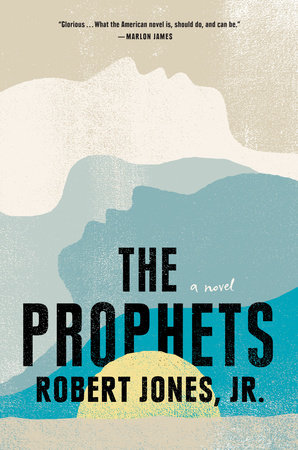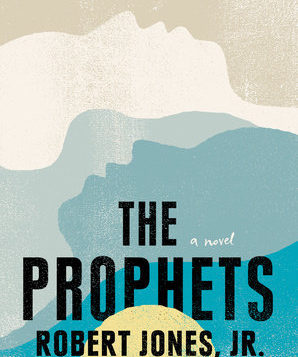 THE PROPHETS
THE PROPHETS
by Robert Jones, Jr.
G. P. Putnam’s Sons. 400 pages, $27.
SOUTHERN SLAVEHOLDERS were “pestiferous,” said the great 19th-century abolitionist Frederick Douglass. They should be “execrated and loathed, with all other robbers and tyrants which have cursed and ruined society.” In his powerful debut novel The Prophets, Robert Jones, Jr., depicts in exquisite, often excruciating, detail the social ruination that slavery brought to the antebellum South. The racist system fostered violence, greed, cruelty and injustice on a massive scale. The enslaved were of course most grievously harmed. Whites, too, were made monstrous by the cursed institution. Setting his narrative on an 1830s plantation near Vicksburg, Mississippi, Jones employs mellifluous prose to tell a story that seems almost beyond words.
The author has embarked upon a difficult undertaking. He writes about same-sex love between enslaved people, attractions that undoubtedly existed but have so far been little explored by historians or fiction writers. It requires great deftness to place a gay couple at the center of a story set in a time when the very words for their relationship had not yet been invented. Jones wisely takes a discursive approach, interlacing his main story with chapters inspired by the Bible (mainly the Old Testament) or fueled by incantatory tales from pre-colonial Africa. Some of these side excursions work better than others. There will be readers who find them airy and abstract, as I did at first. But allow them to cast their spell. Together they bring historical sweep, magic, and flights of lyricism to the earthbound world.

Jones brings enormous depth of feeling and insight to the novel’s myriad characters, his women in particular. Vindictive Ruth also has a mad pagan side revealed in a terrific chapter devoted to a night’s demented wanderings. Burnished by their suffering, the enslaved women of Empty form a circle of near mythic power and resolve. They are determined, almost miraculously, to turn from hurt to healing. Most memorable among them is the much-abused but steely Maggie, who oversees the master’s kitchen, “where sorrow hung like hooks and rage leaped in from any opening.” She embodies slavery’s terrible warping effect, which can turn mother against child or make a slave prefer brutality to unpredictable kindness.
Maggie, among others, takes an interest in Samuel and Isaiah, finding in their unashamed mutual devotion something that makes her own servitude less crushing—“for they were as frisky and playful as crows and her proximity made her feel as if she were in the dark sky, suspended upon the surface of their wings. Oh so black. Oh so high. Up there, where there was safety and glow.” Maggie’s proximity to the Halifaxes sets up her crucial role in the novel’s marvelously rendered climax, violent as a Tarantino film and twice as heartrending.
To think of The Prophets as merely a “gay slave story” fails to appreciate fully its ambition and imaginative richness. Jones’ achievement is to create a world in which love somehow dares to speak its name in the context of our greatest national shame.
____________________________________________________





